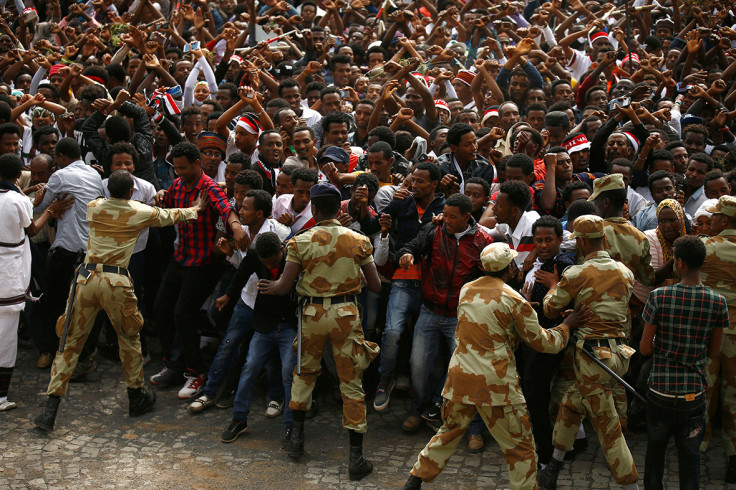EU calls for dialogue with Ethiopia as state of emergency declared
Ethiopia declares state of emergency as violence intensifies in Oromia state.
The European Union (EU) has called for dialogue with Ethiopia, where anti-government protests have led to the alleged death of hundreds of people. The country recently declared a state of emergency as violence is intensifying in Oromia, the country's largest state.
"Today's parliamentary session offers the opportunity to open the way for an inclusive dialogue in response to the grievances of the population. This should lead to a comprehensive reform package," said a EU's spokesperson in what is believed to be the first address on the ongoing unrest since last year.
"Violence, whichever side it comes from, has no place in this endeavour. Now it is time for all forces, inside and outside Ethiopia, to restore calm and join in ensuring that Ethiopia can pursue the path of democracy and development."
It is believed the state of emergency, declared for the first time in 25 years, will last for six months. The announcement came days after at least 55 people died in a stampede at a religious festival in Oromia in October.
In its latest report released on 8 October, Human Rights Watch (HRW) said security forces have killed "more than 500 people during protests over the course of the last year" in Oromia and in the Amhara region.
The organisation added journalists and activists face harassment, surveillance, and criminal charges, and called for an independent and impartial investigation into the violence.
The government has always rejected these figures claiming that people who perished during protests were killed by "anti-peace" forces. Authorities recently blamed forces in Egypt and Eritrea for the ongoing unrest.

Protests in Oromia and Amhara
Demonstrators first took to the streets of Oromia in November 2015 to voice their dissent against a government draft plan that aimed to expand the boundaries of the capital Addis Ababa.
They argued the so-called "Addis Ababa master plan" would lead to the forced evictions of Oromo farmers and would undermine the survival of the Oromo culture and language.
Ethiopia's largest ethnic groups
Who are the Amhara people involved in anti-government protests?
The Ethiopian government scrapped the master plan, following increasing agitation. Protests are continuing, with people calling for self-rule, the liberation of political prisoners and the end of what they perceive to be a military regime in the region. This includes an end to an alleged crackdown by security forces on "peaceful and unarmed" demonstrators, mainly students and farmers.
Human Rights Watch (HRW) and other rights groups claimed security forces killed killed at least 100 people in the Amhara region during anti-government protests held in August. The government had denied the allegations of violence. Protests erupted in Amhara after thousands took to the streets of Gondar and Bahir Dar to protest over the administration of disputed territories.
Members of the Welkait Tegede community demanded their lands be administered by the Amhara region, instead of the Tigray state.
Protesters, who identify themselves as ethnic Amhara – Ethiopia's second largest group – clashed with police during the demonstrations, labelled as the biggest anti-government unrest Ethiopia has witnessed in recent history.
© Copyright IBTimes 2024. All rights reserved.






















